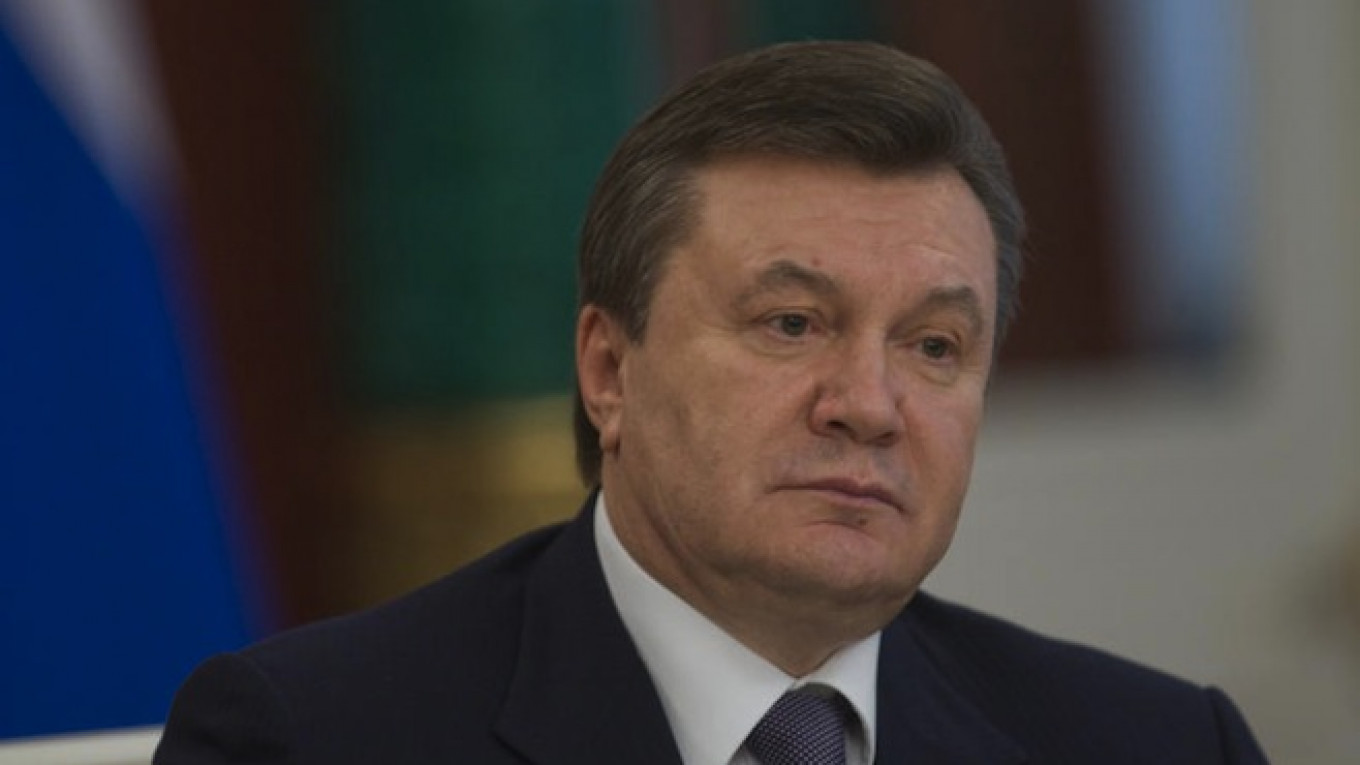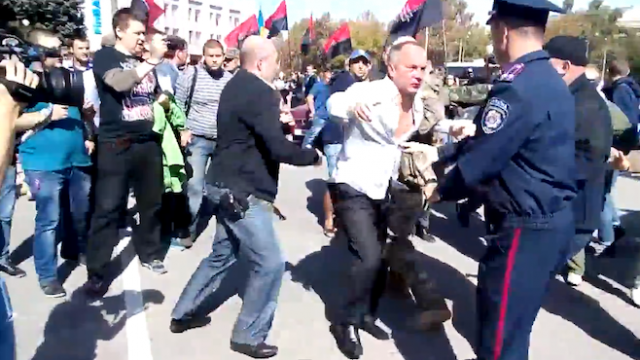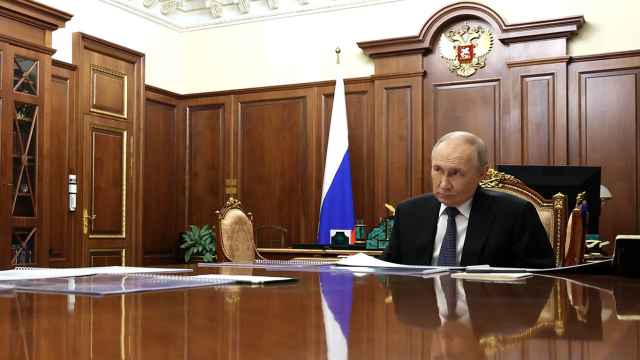Ukrainian President Petro Poroshenko, in a move to head off discontent before an election, signed a law on Tuesday that will allow ousted leader Viktor Yanukovych to be tried by court in his absence for crimes carried out while he was in power.
Poroshenko and his pro-Western government, who are seeking a strong mandate in a parliamentary election on Sunday, face criticism from many for not being tough enough in bringing to justice Yanukovych who fled Euromaidan street protests last February with his family and cronies.
Kiev authorities accuse Yanukovych, who is in Russia, of involvement in the deaths of protesters who were shot dead by police at the time, large-scale theft of state property and funds, and an attempt to overthrow the new leadership.
Up to now, Ukrainian law has not allowed for the prosecution of people abroad to be tried in their absence for crimes committed in Ukraine.
But Poroshenko, who was elected in May and who hopes for a strong pro-Europe coalition of support from Sunday's election, said on his website that he had inked amendments to the criminal code which would allow for those "who have robbed our people" and were hiding abroad to be tried by a court in their absence.
The change to the law foresaw seizure of property and assets of those found guilty in their absence of crimes against the Ukrainian people, he said.
Yanukovych, who was followed by senior ministers and aides when he fled to Russia, left property in the country including a huge estate outside Kiev and at least one villa on the Black Sea.
The signing of the law takes place as the pro-Western authorities try to rid the state bureaucracy of sympathizers of Yanukovych and corrupt officials deemed to have taken kick-backs during his rule.
The overthrow of the Moscow-backed Yanukovych triggered the annexation of Crimea by Russia and pro-Russian separatist rebellions in the east which have caused the biggest crisis in relations between Russia and the West since the Cold War.
A pro-European majority is expected to dominate in parliament after the election, with Russian influence greatly diminished.
A Message from The Moscow Times:
Dear readers,
We are facing unprecedented challenges. Russia's Prosecutor General's Office has designated The Moscow Times as an "undesirable" organization, criminalizing our work and putting our staff at risk of prosecution. This follows our earlier unjust labeling as a "foreign agent."
These actions are direct attempts to silence independent journalism in Russia. The authorities claim our work "discredits the decisions of the Russian leadership." We see things differently: we strive to provide accurate, unbiased reporting on Russia.
We, the journalists of The Moscow Times, refuse to be silenced. But to continue our work, we need your help.
Your support, no matter how small, makes a world of difference. If you can, please support us monthly starting from just $2. It's quick to set up, and every contribution makes a significant impact.
By supporting The Moscow Times, you're defending open, independent journalism in the face of repression. Thank you for standing with us.
Remind me later.






